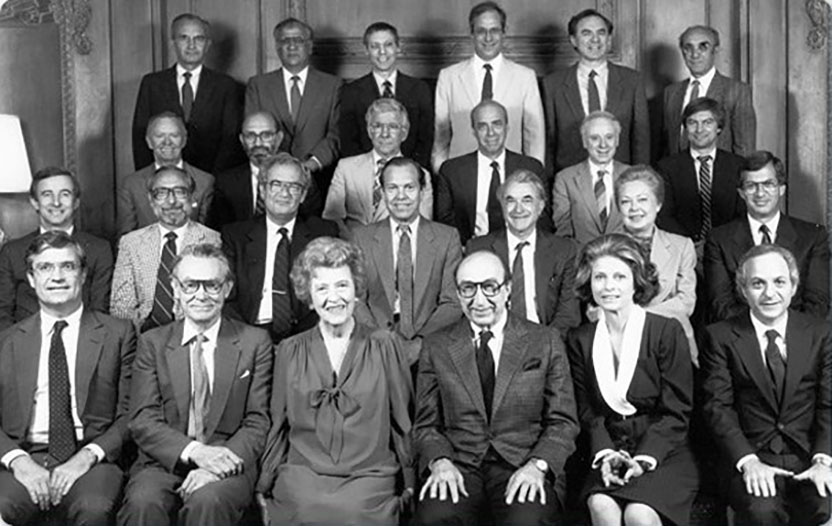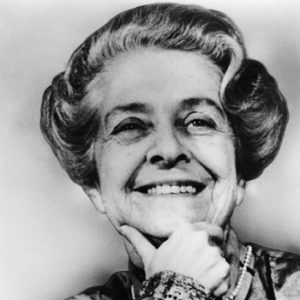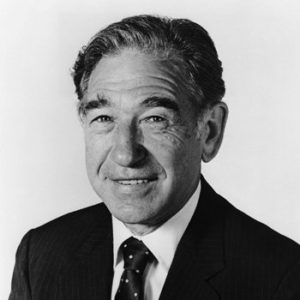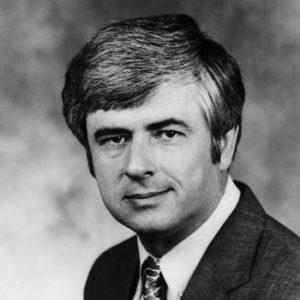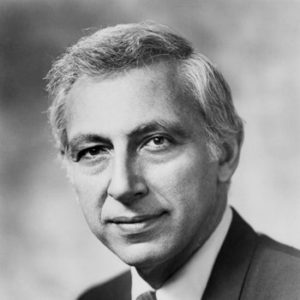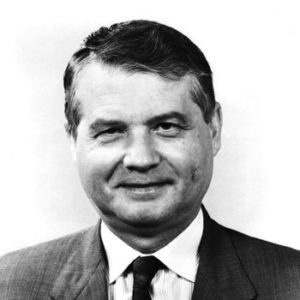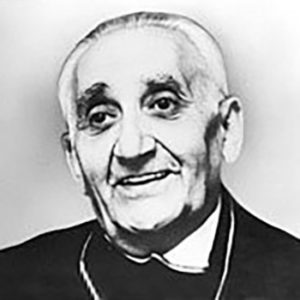This optimism is eloquently expressed in the elegant Awards Luncheon and in the work of the Lasker Foundation which, under the inspired leadership of Mary Lasker for 40 years, identified and rewarded excellence. To review the recipients of these awards, over these years and here with us today, is to chart the pinnacles of true achievement in medical science. There are molecular biologists exploring the exquisite interaction of the human immune system, dissecting the infinitesimal structures of viruses to reassemble them into vaccines against diseases which are the scourges of the human predicament. There are neurological research workers exploring the very life force which creates growth, with the prospect eventually of nerve regeneration giving an unprecedented new dimension to remedial medicine. There are geneticists who, having revealed the immaculate geometry of the genetic code, are now achieving advances in genetic engineering which, however intimidating may be some of the implications, offer new horizons of human possibility.
But also, in giving the Public Service Award today to Dr. Ma Haide, and in the past to people like Donald Henderson and Halfdan Mahler, you have recognized the need not just for the innovative discovery, but also for international delivery. You have celebrated the twin thrust of science along two parallel lines: one, research, led towards an ever more sophisticated technology, and the other towards the global delivery of an existing technology. These lines of advance are complementary and, in medicine more perhaps than in any other science, it will be at our peril if we ever allow them to diverge. There can never be a first world and a third world technology, because no country, no generation, owns that technology. We are but heirs to a thousand years of trial and error, of transferred skills from one country to another.
In a nation with the scale and complexity of the United States, there is perhaps need for an institutional division between your National Institutes of Health and your Centers for Disease Control. If an admiring foreigner may be permitted a question, it would be whether these two great institutions, which together are one of the most powerful energizing forces in modern medical science, should be so sharply separated one from the other. Is it really necessary in both institutions so assiduously to justify expenditure in terms of benefit to American citizens when, together, they contribute so massively to, and benefit significantly from the whole world advance of science and, in their impact on global development, make one of the most dynamic contributions of the United States to the modern world?
It is this potential alignment between invention and delivery which adds credibility to some of the great coordinating ideas of world health, ideas which otherwise could seem just political rhetoric or visionary nonsense. There is the concept of universal primary health, the World Food Programme, The Water Decade and, in my own field, the global attack on avoidable disability, eradication of poliomyelitis, control of major causes of childhood disability and, by the exercise of inexpensive surgical skill, the restoration of sight, movement or hearing to 100 million people who are curably blind, deaf, or physically handicapped.
It is perhaps inevitable that the forward thrust of science confines us within our disciplines and that we become captives of our institutional arrangements, departmental concepts and even of our professional vocabulary and metaphors. It must be part of the responsibility of the leaders of science to ensure that these intellectual divisions, which we create with such enthusiasm, do not inhibit the multidisciplinary flow of science, or dull its humanitarian vision. If nuclear physicists and biochemists communicated only in the smoke signals from their respective laboratories, we would never have produced the science of molecular biology.
A prevailing modern fear is that the forward movement of science may be too swift for our social and political institutions to control, and that its very concepts may become too complex for human minds to comprehend, and too vast for intercommunication. Fortunately, we still have our Leonardos, the inspired craftsmen and gadgeteers. When sight becomes too dull, they invent telescopes and microscopes, to peer into the galaxies and into the structure of a single atom. When brains are too slow, they invent computers and data systems.
Indeed, with the development of this sense-enhancing gadgetry, a level of coordination may become possible which has not existed since the time, four centuries ago, when a group of scholars meeting in Rome, in Paris, or at The Royal Society in London could, in a single evening, review the whole spectrum of knowledge. At your National Library of Medicine, an individual scholar, however limited his discipline, can, with a few movements on the computer and with a bit of luck, have instant access to the world of medical literature in a way that has not been possible since the lost library of Alexandria.
Perhaps that coordination need not be limited to the medical and physical sciences. It might include the arts, the insights of literature and moral philosophy. And, in its overview, might find meaning for those wild, mad, true leaps of prophetic religion. The modern equivalent of Renaissance man might be the computer-assisted scientific philosopher. If this all sounds rather fanciful, it is at least reassuring that some of your medical schools are now venturing upon the humanities. There remains, of course, the question of whether all this ingenuity will be self-limiting in the sense that it will eventually destroy itself. We cannot say that we have not been warned. Adam ate the apple of knowledge, and was turned out of Eden. Vishnu, the God of creation and healing is also Shiva, the destroyer of worlds. Prometheus stole for us humans fire from heaven, and the Promethean flame has now got into the atom bomb.
The corrective may well be to recognize that all this ingenuity is innovative only in the sense that it is revealing phenomena and life systems which have existed since the beginning of evolutionary time. As we lift the curtain of immemorial ignorance, we reveal but the drama and majesty of life itself. Beyond all our inventions is the massive, silent mystery of the unknown.
We do well to approach with humility, but not with humiliation. I wish it were possible occasionally in our great cathedrals and places of reverence to celebrate the ascent of man. The Jewish family in its Bar Mitzvah recalls the history of its race. Each nation, however self-consciously, celebrates its origin and victories. Could we not, just once a year, recall our progress as questioning human beings in our lonely planetary home?
Surely this is something to celebrate. In Heneford Cathedral in England there is a 14th century triptych which shows angels with streaming hair falling like comets through space. They are the rebellious angels, thrown out of heaven, because they were jealous that God had given to us preposterous humans the incomparable privilege and adventure of life on Earth.
In a sense, this Awards Luncheon is such a celebration, and this symbol of the Lasker Foundation, this fabled Winged Victory. This goddess, as ancient as the myths of Greece, steps through the winds of time, to command and bless the thrust, the search of human endeavour.
It is appropriate that this symbol should be presented here in New York; for you, here in the United States, are now that frontrunner, and, like that ancient goddess, exposed to the wind, the challenge, the fret of movement. Do not falter in that advance because, in much that is best and most generous in modern science, you are the present custodians of that Winged Victory.
It is a perilous trust. Four centuries ago, Francis Bacon—who started this whole “shebang” of the scientific method and experimental philosophy—warned against the pride, the limitation of knowledge. He said, “Let us not so place our felicity in knowledge that we forget our mortality.”
Those of you who are working on AIDS are not likely to forget that.
He said also that we must “make application of knowledge to give ourselves repose and contentment, and not distaste and repining.” Finally he said, “Let us not presume, by the contemplation of nature, to attain the mysteries of God.”
